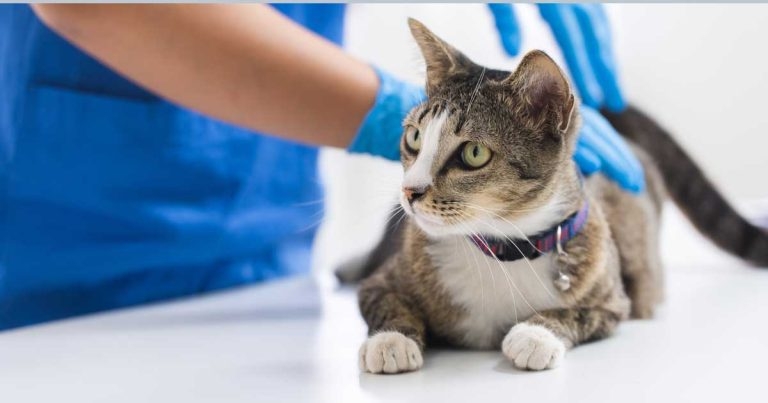25 Aug 2023
A clinical audit that reduced prescribing of one common antibiotic by nearly a third has boosted professional and client confidence, practice leaders say.

White Lodge Veterinary Surgery’s initial audit focused on the treatment of cat bite abscesses, with guidance developed that antibiotics were not needed for discrete abscesses. Image: © mojo_cp / Adobe Stock
Staff of a Devon veterinary practice believe their progress in curbing antibiotic use can also help to shape future guidance for the wider sector.
Officials at the White Lodge Veterinary Surgery in Exmouth say a clinical audit cut prescriptions of one common antibiotic by nearly a third and the products weren’t needed in many cases.
The practice now hopes to share its findings more widely through a partnership with RCVS Knowledge, after the latter organisation named it as an Antimicrobial Stewardship Champion in May.
Head vet Emily Parr said: “Antimicrobial resistance is continuing to threaten the efficacy and treatment of an ever-increasing range of infections.
“We hope that our outcome results will help to set a benchmark and shape clinical guidelines for the wider veterinary profession in this area.”
The practice’s initial audit focused on the treatment of cat bite abscesses (CBAs), for which the antibiotic cefovecin is a commonly used treatment.
Following specialist dermatological advice, a clinical guideline was developed that advised that antibiotics were not needed for discrete abscesses with no raised temperature or cellulitis.
Instead, such cases were treated through a combination of NSAIDS, lancing, flushing and cleaning, with owners being advised to flush the affected area daily before a follow-up examination within five to seven days.
An information leaflet, setting out the reasons for not using antibiotics, was also given to each owner.
Out of 22 cats treated through the protocol, 19 (86%) were found not to need antibiotics to treat the abscess, while the proportion of cases in which cefovecin was prescribed fell by 32.6% in the first eight months after the audit began, compared to the same preceding period.
The success of treatment was assessed through whether the abscess site was free of infection and appeared to be healing on re-examination.
Work has continued to extend the audit, including collaboration with other practices, and it is hoped the RCVS Knowledge link will make the process more accessible across the wider profession.
Dr Parr said the process had not only helped professionals, but also served to boost relationships with clients.
She said: “We think, due to lack of confidence in treatment without antibiotics as well as client pressure or expectation, the profession tends to default to the prescribing of antibiotics.
“However, this clinical audit has given our veterinary colleagues increased confidence in treating CBAs without antibiotics.
“There has also been an improved client understanding in accepting treatment without antibiotics.
“Clients have also been positive when minimal intervention has been required, particularly as it eliminates the cost of antibiotics. This has had a positive impact on the vet-client relationship and trust in our practice.”